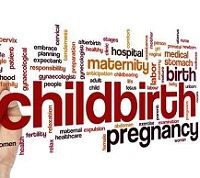Article
Study: Women with Epilepsy Face 10-fold Higher Childbirth Death Risk
Author(s):
Women with epilepsy have a 10-fold higher risk of dying in childbirth than women who do not have the disorder, a study in JAMA Neurology found.

Women with epilepsy have a 10-fold higher risk of dying in childbirth than women who do not have the disorder, a study in JAMA Neurology found.
Sarah MacDonald, BSc of the Harvard T.H. Chan School of Public Health in Boston, MA and colleagues conducted a retrospective cohort study of pregnant women using records from the 2007-2011 Nationwide Inpatient Sample, a representative sample of 20% of all US hospitals.
She found that the death rate during delivery for women with epilepsy was 80 deaths per 100,000 pregnancies compared to 6 deaths per 100,000 pregnancies in women without epilepsy.
Women with epilepsy also had higher rates of preeclampsia, preterm labor, and stillbirth. They also were more likely to have cesarean sections and undergo induced labor.
In addition, their babies also faced increased risks associated with the anti-epileptic drugs the mothers used.
.
The researchers looked at more than 4 million delivery-related hospital discharges, including those of 14,151 women who had epilepsy.
The mean age of the prenant women with epilepsy was 27.1 years, compared to 27.6 years for women without epilepsy.
The highest proportion of women with epilepsy who gave birth (41.5%) was in the Southern US.
One implication of the findings, the authors said, is that despite all these risks for mothers and babies, “We did not observe evidence that women with epilepsy are routinely triaged to high-risk medical centers,” but use the same types of facilities as women not exposed to these risks.
The team was unable to conclude precisely why these women died, but offered some hypotheses.
“Part of the increased risk may be mediated by the higher prevalence of potentially life-threatening obstetrical complications such as preeclampsia and postpartum hemorrhage,” they wrote.
Or the deaths could be related to mothers given birth while in status epilepticus, or fluid aspiration during a seizure.
‘
In an accompanying editorial, Jacqueline French, MD, of NYU Langone School of Medicine in New York and Kimford Meador, MD, of Stanford University School of Medicine in Palo Alto, CA, agreed that the study showed a need to target women with epilepsy for a higher level of obstetrical care.
“The study should sound a major alarm among physicians and researchers,” they wrote.
Still, they noted, “Most women with epilepsy have uncomplicated pregnancies.” That fact shows that the mechanisms underlying the risks need to be better understood so doctors can come up with interventions to reduce them.





